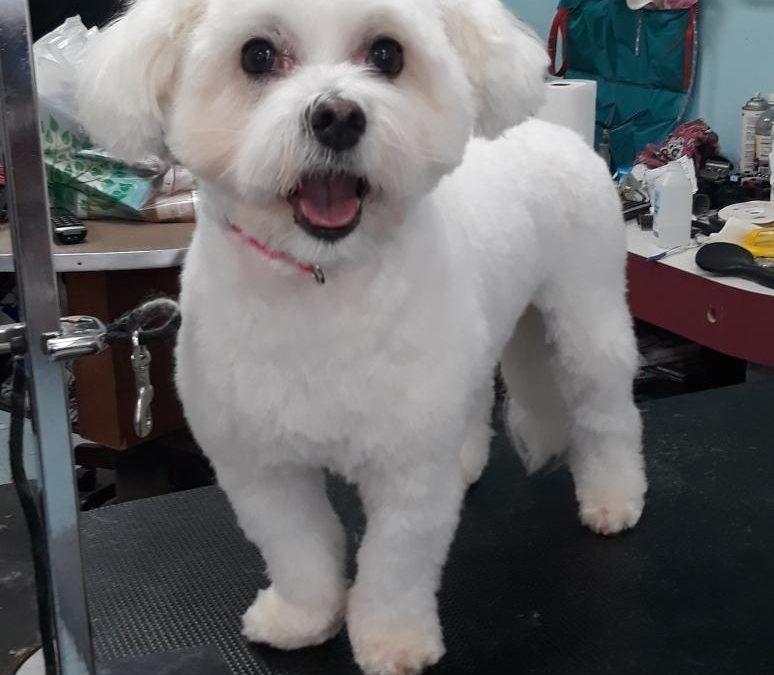This is Beau, our 6 year old, 14 pound Maltese.
Last Saturday, after our normal late evening stroll he came home with a sour stomach, became lethargic and lost his zip and vigor.
On Sunday he was no better, so we took him in. The vet gave him a shot to relieve the stomach upset but on Monday he was noticeably worse.
Something serious was going on.
He had zero energy. He wouldn’t eat, drink, pee or poop. He was listless, eyes were bloodshot, had the shakes and when he tried to walk his movements were erratic and unstable. He wanted to do one thing only – go outside and lie down – far from the house. He knew he was dying.
When I cam home from work that Monday evening and saw this, I knew he was dying too. Carla wrapped him up in a blanket and I drove him to the doggie ER.
The on-call vet, also very concerned, ran a full blood panel. Beau had a life threatening condition called Addison’s Disease. Addison’s disease occurs when the adrenal glands stop producing hormones that control salt, sugar and water balance in the body.
The doctor admitted him immediately. It was touch-and-go for a few days while the vets struggled to stabilize him. But after five days of excellent care, Beau had recovered enough to come home. They saved his life!
If there is a good thing about Addison’s it’s that it is treatable with medication. Dogs can live a normal life, but it’s a chronic condition requiring meds for the rest of their life.
Now for the lesson in personal finance.
Beau’s bout with Addison’s set us back thousands of dollars. He’s worth every penny and more. But what if I didn’t have that money set aside for a rainy day?
Then the outcome could have been very different – we would have had to skip a mortgage payment or borrow from family or friends or load up on a credit cards. Or worst of all, pull from our retirement account.
And what if we didn’t have any of those options? We’ve heard stories of pets being abandoned or allowed to die for financial reasons – a devastating choice to have to make.
I’m a believer in an emergency fund, created before you start investing. It doesn’t work very well to say your investment account is your emergency fund.
A lot of personal finance decision-making has its genesis in how you think about things, and Beau’s story is one example.


